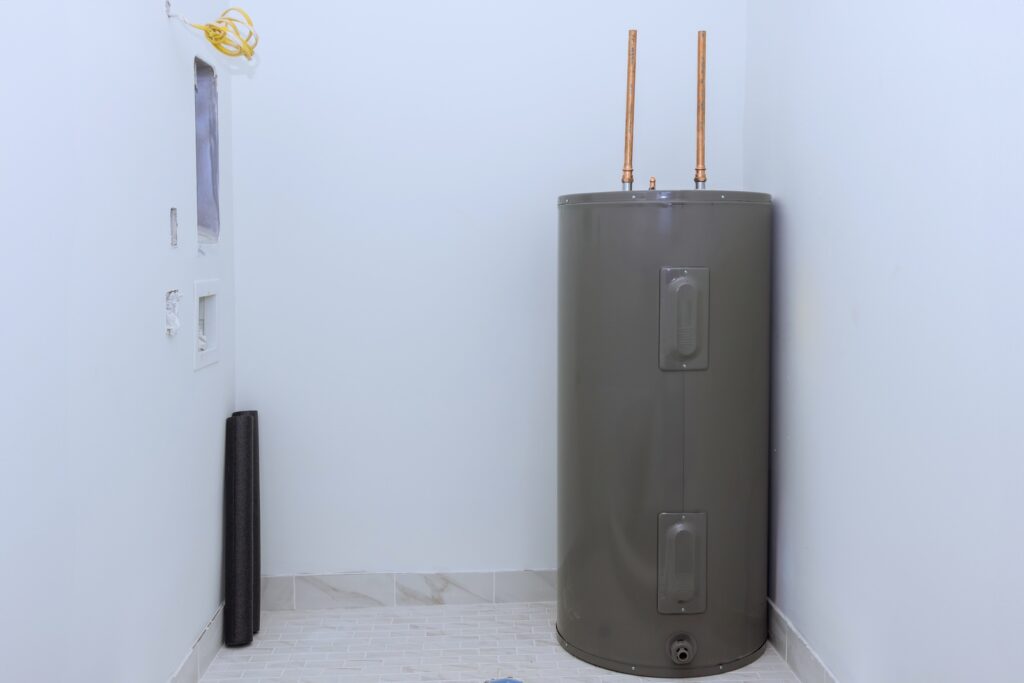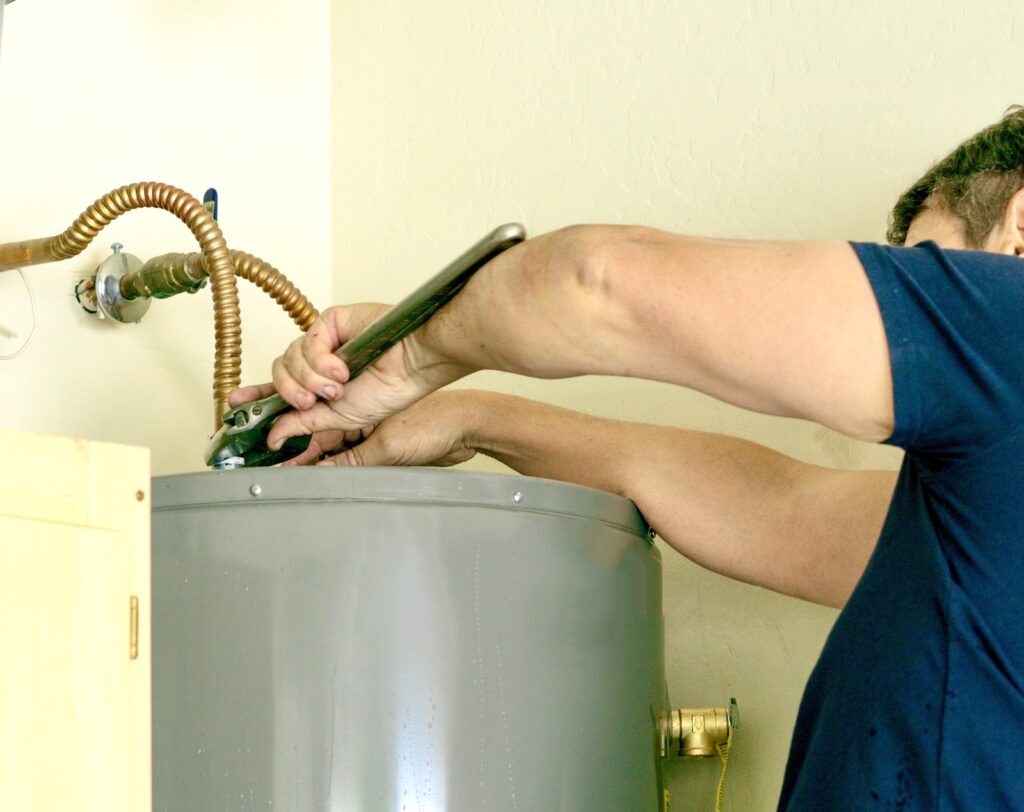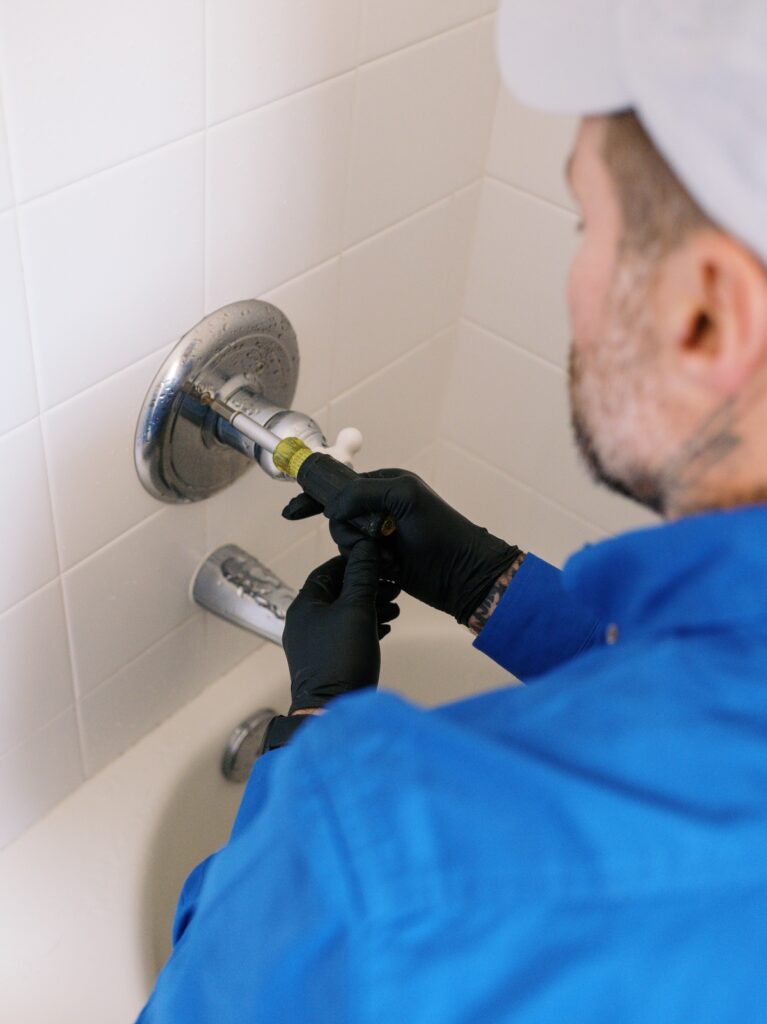Water Heater Repair Cost In Virginia (Breakdown)
Ever had one of those moments where your water heater decides to take an unexpected break? Maybe your shower turns icy cold, or your kitchen sink refuses to give you hot water.
It’s super frustrating, right?
And the first thing that probably crosses your mind is, “How much is this going to cost me?”
The truth is, water heater repair costs can vary quite a bit depending on what’s wrong, the type of heater you have and a couple of other factors.
In this post, I’ll break down how much water heater repairs cost and the factors that affect it.
How Much Does It Cost To Repair A Water Heater?
The cost to repair a water heater in Virginia is around $200 and $1000.
The good news is that most repairs fall somewhere in the lower or middle of that range.
If you’re lucky, you might be looking at a couple hundred bucks. If things are more complicated, well, you could be staring down a bigger bill.
It really depends on the issue at hand, and a few other factors.
That said, the price is often well worth it when compared to replacing the entire water heater.
Our Virginia Water Heater Repair Prices
Our water heater repair prices also fall in the same range and the exact cost depends on a number of factors that we’ll get to in a minute.
If the repair needs a complete replacement, we also do water heater replacements.
Here’s a breakdown of our standard replacement costs:
- Standard Electric Water Heater Replacement: Starting at $2300
- Standard Gas Water Heater Replacement: Starting at $2500
- Tankless Water Heater Swap (Same Brand): $3500 – $4500 (depending on model)
Please note: These prices are for standard installations with no modifications to existing piping. Additional work may affect the final cost.
Contact us for a personalized quote!
Check Out Our: Richmond Water Heater Repair Services
Factors That Affect Water Heater Repair Costs

Now, let’s go over what actually drives those numbers. There are a few things that play into how much you’ll end up paying for water heater repair in Virginia. Let’s go over them one by one:
#1 Type Of Water Heater (Tank Vs. Tankless)
First up, the type of water heater you have matters—a lot.
You’ve probably heard of the two main types: tank and tankless water heaters.
Tank Water Heaters are the traditional kind. Repairs on these tend to be cheaper because parts are easier to find and the systems are simpler.
Tankless Water Heaters, on the other hand, heat water on demand, meaning they don’t store it. These can be trickier to repair. They often have more advanced technology and parts that cost more to replace.
So, if you have a tankless heater, the water heater repair cost is going to be higher.
#2 Nature Of The Issue
The specific problem with your water heater matters a lot.
Some repairs are quick and easy, while others require more time and effort.
For example, if your water heater isn’t producing enough hot water, it could be something as simple as a thermostat adjustment. Easy fix, low cost.
But if you’re dealing with a leaking tank or a busted heating element, that will be expensive. Those kinds of repairs require more time, effort, and materials, which means higher costs.
It’s also worth mentioning that some issues are easier to spot and fix, while others might require a thorough inspection.
The more complicated the issue, the more you’ll probably pay.
Also Read: Shower randomly drips
#3 Parts That Need Replacement
The specific parts that need replacing can make a big difference in the final bill.
Some parts are cheap and easy to swap out. Others? Not so much.
For example,a basic heating element might cost around $30-$50, while a more complex component like a control board could run you $100 or more.
And if the entire tank needs replacing, well, you might want to sit down for that conversation.
Pro tip: If you’ve got an older water heater, it’s worth asking the technician if the part is even still available. Sometimes, finding replacement parts for older models can be a real headache – and a wallet-drainer.
#4 Labor Costs
Labor is another big factor that affects the cost of water heater repair.
In Virginia, labor rates for plumbing can range from $45 to $150 per hour.
That might sound steep, but keep in mind that plumbers are skilled professionals. They’ve got years of training under their belts, and they’re solving problems that most of us wouldn’t even know where to start with.
The total labor cost will depend on how long the repair takes.
Simple jobs might only take an hour or two, while more complex repairs could stretch into half a day or longer. Again, it all comes back to the nature of the issue.
Some repair companies also charge a flat fee for diagnosing issues.
Also Check Out Our: Emergency Plumbing Services In Richmond
#5 Age And Condition Of The Heater
Older water heaters tend to cost more to repair.
Why? Because as appliances age, they wear out. Parts get brittle, seals degrade, and overall efficiency drops. Plus, some of these parts may no longer be available or super hard to find.
So, if your water heater is pushing 10 years or older, repairs might not only be more expensive—they might also be more frequent.
On top of that, if your heater has been neglected (like never getting flushed or serviced), it’s probably in worse shape than one that’s been well-maintained.
That means more work for the plumber and, you guessed it, a higher bill for you.
#6 Location Of The Water Heater

Believe it or not, where your water heater is located can impact the cost of repairs.
If it’s in an easily accessible spot, repairs tend to be faster and cheaper.
But if it’s in a tight or awkward space, like in an attic or crawl space, the plumber may have to spend extra time just getting to the heater. That can add to the overall repair bill.
This is especially true in Virginia, where some older homes have quirky layouts.
So, if your water heater is in a hard-to-reach area, be prepared for higher labor costs since the technician will need extra time and effort to get it repaired.
#7 Warranty Or Service Plan
Does your water heater still have a warranty or a service plan?
If so, you might be able to avoid some or all of the repair costs. Many water heaters come with warranties that cover parts for a certain number of years.
So, if the problem falls within the warranty period, the manufacturer might foot the bill for repairs.
If you’ve signed up for a service plan with your plumber or the company that installed the water heater, you may also get discounts or have some parts and labor covered.
It’s always worth checking!
Bottom Line
Water heater repairs in Virginia can range from as low as $200 to as high as $1000 or more, depending on the type of water heater, the issue at hand, and how old the unit is.
The main factors are the type of repair needed, and the parts that have to be replaced.
Before you panic about the costs, make sure to get a few quotes and ask about warranties or service plans that might cover some of the expenses. And remember, sometimes fixing an older water heater just isn’t worth it, so replacing it might be the better option in the long run.


